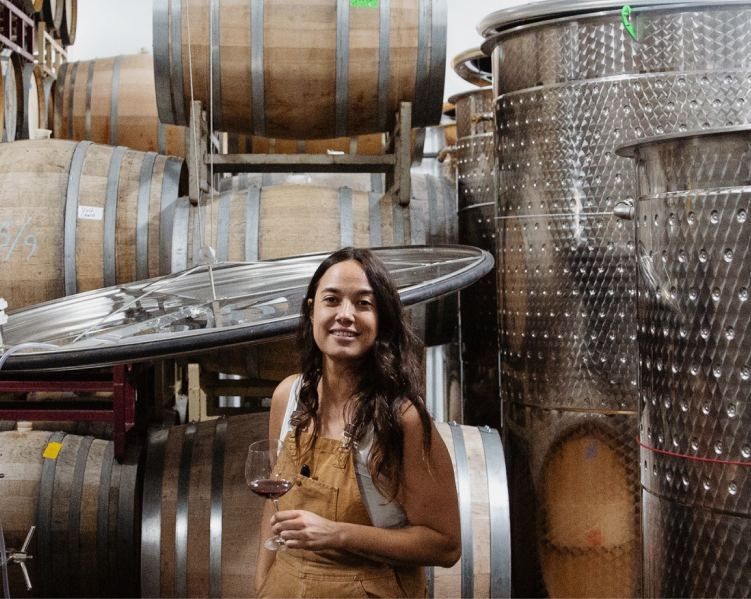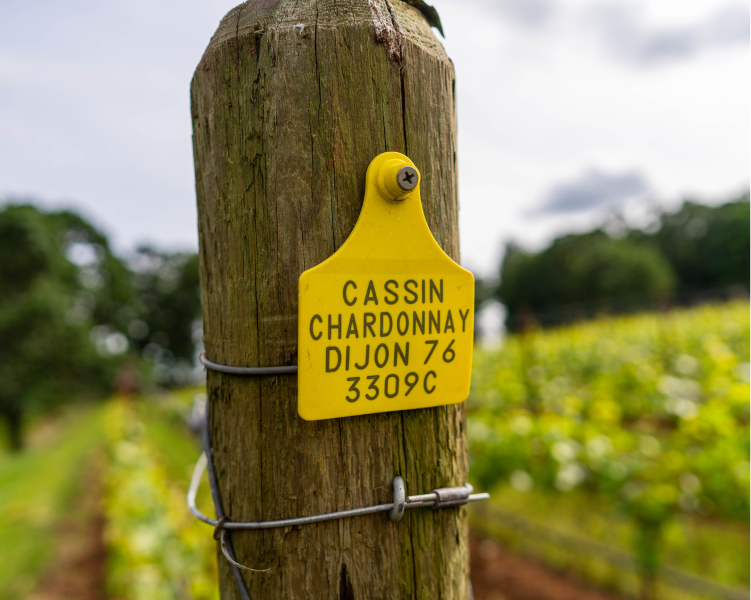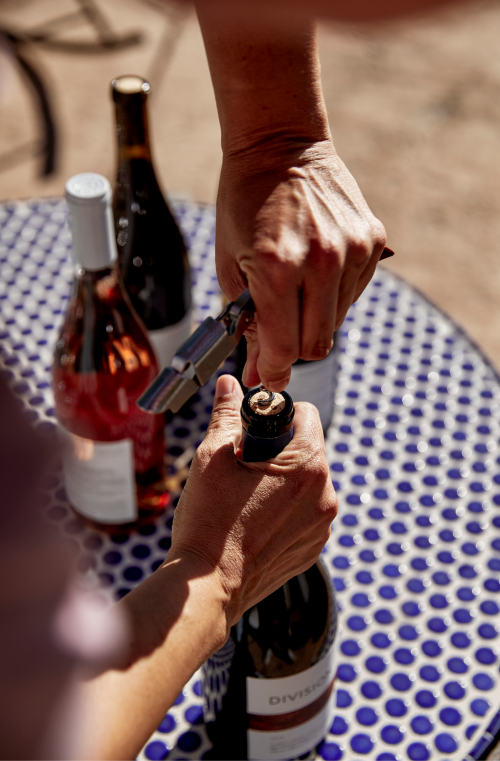Words with Thomas Monroe
Division Winemaking Company co-owner and co-winemaker Tom Monroe got his start in banking, but was drawn away by the artistry of wine. The unique trifecta of people, science, and art, has kept him in wine for the past decade. Playing multiple roles in his constantly evolving day-to-day is one of the elements to winemaking that Tom enjoys most. Tom sat down to talk to us about his point of view on winemaking, its relationship to artistry, and the role of experimentation.
How do you think about winemaking? I try to think about wine as proactively as possible. Every harvest, I ask myself what are the things that I can do ahead of time, in order to not have to do as much in the moment. Be hands off. With winemaking, the goal is to let the grapes and the sites we have express themselves. Winemakers are an integral part of the process, but I equate it to a chef and food. If you over season something, it takes away the nature and beauty of the produce you sourced for your dish. I’m always asking myself, how can we make something beautiful without stepping in too hard, overwhelming the wine. We’re constantly trying to reduce how much we intervene, overreach, while still guiding the wine just enough so that we’ve created something unique, distinct.
What makes your point of view different? Our approach stands on the opposite side of commercial wine with its safety nets and risk mitigation. For that approach it doesn’t matter what the season, or harvest was like. It’s like following a recipe. We’re very different from that, we don’t follow any path exactly the same way each time. It’s always modified with little changes made up to the last moment to reflect what that year has given us. On the other end of the pendulum is the modern natural wine movement which we feel closer to. Ultimately we’re trying to make the best wine and we leave all the dogma out of it. We’re proud to be winemakers. Maybe it makes us pragmatists. The goal is to make something beautiful. I would hate to lose a beautiful wine because we trampled all over it, and hate to lose because we did nothing. We straddle the middle ground.
Why do you make wine? For me personally, it was about finding a career path that straddled my ADD mindset of doing lots of different things. Day to day, I have no grind. It’s a good fit for my mind. Every year, every customer we engage with, every wine, is completely different. It’s a career space where you are constantly touching people, science, and art. Ultimately creating something by design that brings people together. I find that immensely fulfilling.
When you set out to experiment with a new varietal, a new project, or craft a new vintage of Division Un, what goes through your mind? Well, a few things: what did we like that we’ve done in the past; and what can we improve on? First, it’s all about reflection. We also have to take into account what is happening this year, changes in the vineyard, what is the harvest moment looking like – is it warm, cool – do we have any other challenges like equipment? Altogether it’s a lot of little things. With the core vineyards that we work with, we have a very good feel for how they react under certain conditions. It gives us a thought process to follow – maybe one produces fruit that is bulletproof year after year, or maybe we will need to be very careful. The careful ones – they’re the ones that end up being extra special. It’s all experience, I guess. There is no short cut around experience.
In your mind, how do winemaking and artistry intersect? Wine is one of these things we have left in the world that’s not really going to be taken over by the gig economy, or someone in Silicon Valley – it’s a biological product, with dependency on yeast, hands, and hard work. Tech does integrate into our world sure, but anything biologically dependent, it evolves over time. The way certain yeast strands develop, this piece of land or that, those details are always going to give us something unique. As long as unique things are still appreciated by people out there, there will be those drawn to the art side of wine. My hope is that there will always be a part of humanity that wants products that embody the character of the people who make them. It’s so individual, like a story tasted through the wines.
In Good Company
Sign up for our newsletter, In Good Company, to receive stories on winemaking and the latest news on wine releases, events, and more.


